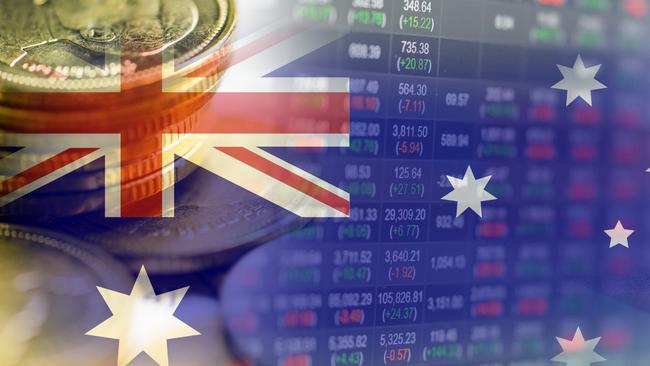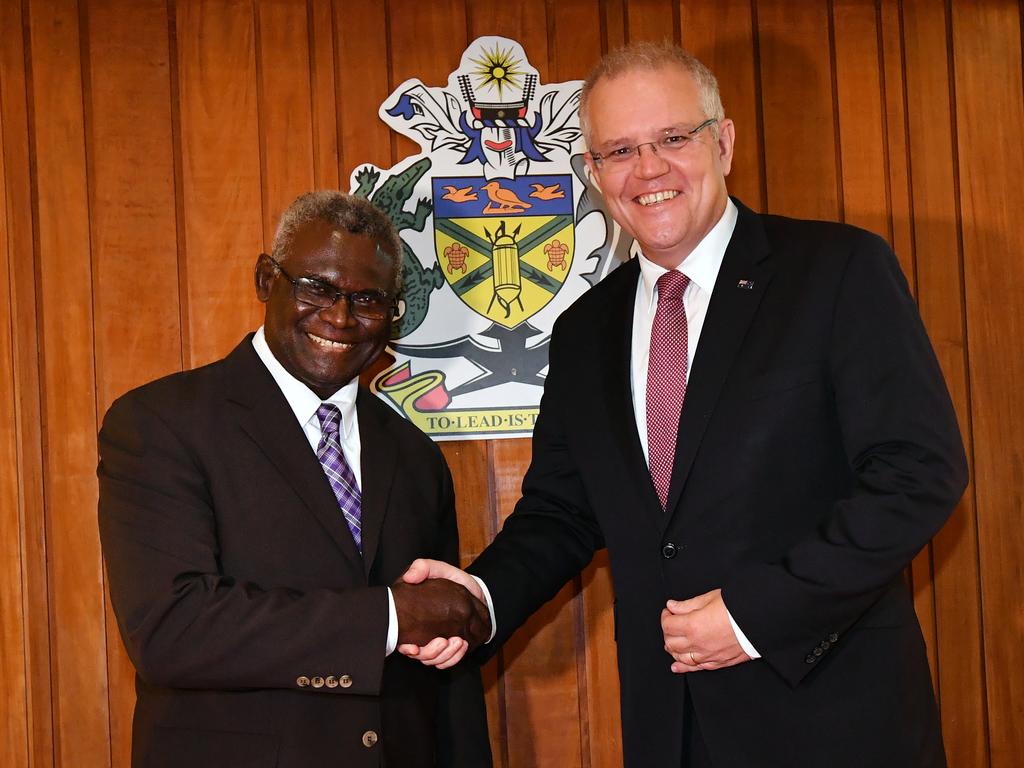
Australia is particularly vulnerable to this new world environment and the dangers facing the nation are multiplied because, until we emerged with a shocking real annual inflation rate of 8.4 per cent in the March quarter neither political party understood what was really happening. And, as I will describe below, the frontrunner in the election, the ALP is now headed onto a particularly dangerous path that could even push inflation above 10 per cent, leading to dramatic interest rate rises.
My task today is the plot a road map out of the signals being sent by the share and bond markets.
But first, two situations with immediate danger have emerged. The world’s richest man Elon Musk is currently negotiating with his bankers to borrow a large part of the $US44bn he requires to buy Twitter.
His main security will be Tesla shares, which have slumped in price because the company is very vulnerable to this new environment. He had better have some other assets.
Second, Australia’s inflation rate is clearly dangerously high. Opposition leader Anthony Albanese is spruiking the need for wage increases, making us very vulnerable to further inflation escalation.
Everyone should be aware that when there are major falls on Wall Street there is normally substantial forced selling of those securities that have been bought on margin, plus extensive “shorting” (traders selling shares they don’t own) by those expecting further falls.
But this latest fall has deep underlying causes that go beyond market froth.
The first underlying cause is that around the world central banks and politicians overstimulated their economies to reduce the impact of Covid. In the US, the Federal Reserve helped drive inflation above 8 per cent. It took far too long, but finally the Federal Reserve recognised the US problem, and is now promising big increases in interest rates, just as was signalled by the bond market many months ago.
Higher interest rates work by slowing the economy and making it very difficult for enterprises to pass on cost increases. In turn that impacts profits and share values.
Given that Federal Reserve chair Jerome Powell now understands the seriousness of the US inflationary upward spiral, he needs the sharemarket to fall sufficiently to change the pattern of behaviour in business enterprises.
Paradoxically, this week’s fall actually takes some of the “slowdown burden” off interest rate rises, which is why bond yields have slipped a little.
Coinciding with the global inflationary danger, the world’s two most powerful dictators — Vladimir Putin and Xi Jinping — are both undertaking actions that are disastrous for the world and their own countries.
Vladimir Putin’s brutality in Ukraine and his threats to use nuclear weapons have shocked the world.
Xi Jinping, on discovering that his Chinese vaccines were not as good as the rest of the world’s, could not bring himself to ask the West for help.
Instead he has embarked on the biggest shutdown the world has ever seen. (I jest in saying Victorian premier Daniel Andrews, who had the previous record, must be in awe of the Chinese dictator). The consequent slowdown in the Chinese economy is impacting businesses around the world, particularly those where Chinese goods are essential parts of the supply chain and in the hi-tech sector.
Just as Europe depended on Russia for gas, the hi-tech sector is very integrated into China. For example, Elon Musk’s Tesla has China as a major market for Tesla cars and has a factory in Shanghai which is currently a ghost town.
I suspect that at some point China will change course because, as Daniel Andrews found out, the population becomes too angry.
Australia’s high inflation rate and the large amounts of cash slushing around middle and upper income Australia means that, like the US, we about to raise interest rates to slow the economy. As I have pointed out many times if we raise those interest rates by much more than 1.25 per cent the Commonwealth Bank tells us it will create carnage in many areas of the economy because too many households over borrowed in recent years to buy dwellings.
The key element of Albanese’s quest to be prime minister is wage rises, which are long overdue because many areas of the community have not caught up with the rising prices. Albanese’s opening gambit will be to support at least part of the 25 per cent wage rise being requested by aged care workers.
That will send public servants across the board into a frenzy of wage increase activity. At the same time minimum wage will be increased. A large number of businesses have enterprise agreements that carry low wage rises that will expire in the next year or so and therefore general industry will get caught up in the high wage push.
Already the cost of picking fruit and vegetables has been ballooned and the wage pressure is about to be joined by a volley of other cost rises. Although the reduction in fuel exercise will provide limited and temporary relief, retailers and wholesalers have been warned by Chinese suppliers to expect big rises in prices. Local supplier costs are also rising sharply and will accelerate under looming wage pressure. Australian enterprises will seek to pass on all these cost increases so exploding our inflation rate.
If that’s what happens then interest rates will have to rise substantially and those with high borrowings will be hit hard, particularly as house prices will fall further. To avoid this catastrophe, whoever wins the election will need to grasp the fact that the environment has changed.
Finally, Putin and Xi Jinping have alerted the world that it’s dangerous to be too dependent on Russia and China. A new world of less dependence will emerge. Australia will need to adapt to it.








For many months bond markets have been warning the world that we are headed into a totally new environment. Sharemarkets, awash with cash, ignored the bond market messages but have now finally woken up to what is ahead.